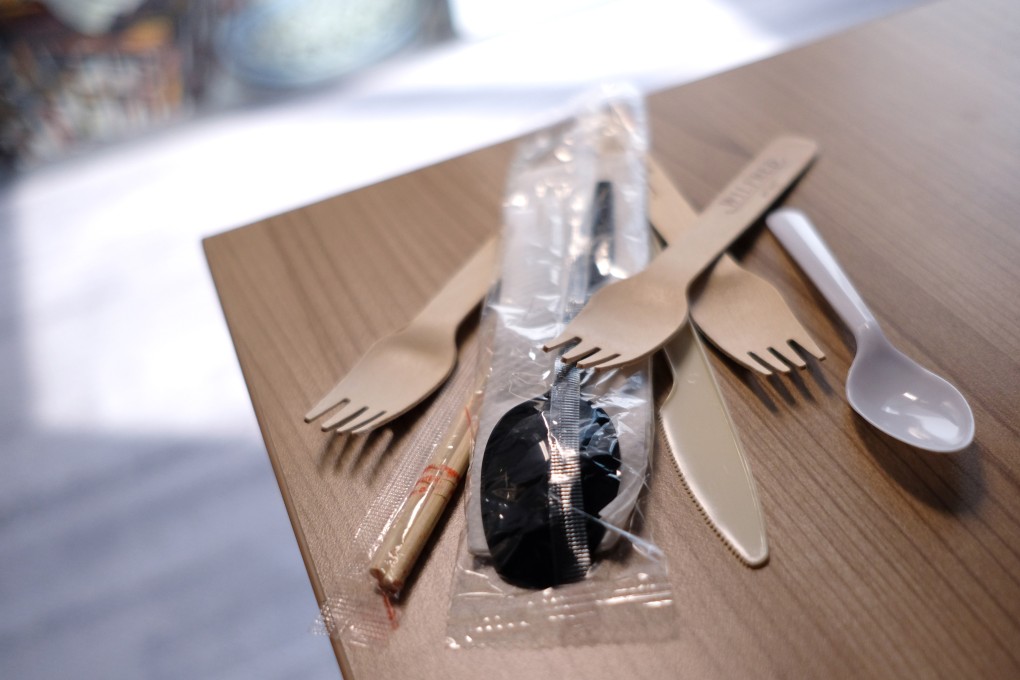Advertisement
Chinese study finds food delivery apps could drastically cut plastic waste by ‘nudging’ users to skip cutlery
- Alibaba-owned Ele.me increases frequency of orders without single-use tableware by more than 600 per cent through ‘green nudge’ encouraging users to opt out
- If all delivery services in China adopt the practice, it could save more than 21 billion sets of forks, spoons and chopsticks annually, scientists say
Reading Time:3 minutes
Why you can trust SCMP
2

One of China’s biggest food delivery apps increased the frequency of orders without single-use cutlery by more than 600 per cent through a “green nudge” that encourages users to opt out of disposable forks, spoons and chopsticks, according to a new study that says the practice could have “tremendous” consequences for reducing plastic waste.
The paper, published on Friday in the journal Science, was part of a collaboration between the Asian Development Bank and Alibaba, owner of the South China Morning Post. China produced almost one-third of the world’s plastic as of 2021, according to a June report by the ADB.
The study was conducted from 2019 to 2020 after pilot regulations were introduced in Shanghai, Beijing and Tianjin prohibiting food delivery platforms from including single-use cutlery in orders unless explicitly requested, according to the paper.
Advertisement
The pilot regulations were introduced as part of a policy objective set by the National Development and Reform Commission aimed at reducing the use of disposable cutlery in takeaway orders by 30 per cent by 2025.
Starting in 2019, Alibaba-owned food delivery app Ele.me made “no cutlery” the default option in its checkout window for users in a handful of cities, requiring them to opt in to receive cutlery, which had previously been included by default.
Advertisement
Advertisement
Select Voice
Choose your listening speed
Get through articles 2x faster
1.25x
250 WPM
Slow
Average
Fast
1.25x